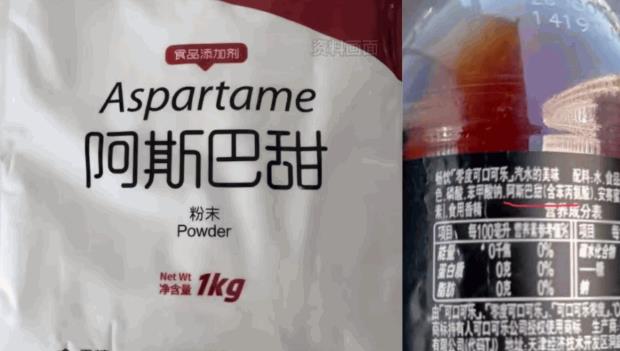Sugar-free is not healthy! According to Reuters, Aspartame, one of the world’s most common sugar substitutes (wild sweeteners), will be declared a “probable carcinogen” next month by the National Cancer Research Agency (IARC), part of the World Health Organization (WHO).

Aspartame
▲ Most people think that “sugar-free” mouth and stomach are healthier than “real sugar”, in fact, they use substitute sugar such as aspartame to make sweetness.
The IARC will classify aspartame as “carcinogenic to humans” for the first time in July, Reuters quoted sources as saying. Aspartame is one of the most common wild sweeteners in the world and is widely used in diet sodas, Extra sugar-free gum and some Snapple drinks.
IARC reportedly made its decision earlier this month after an external master review. However, this choice does not reflect how much quality is safe for individuals to ingest, and the relevant initiative will be decided by the WHO Master Committee on Food Additives (JECFA) and national regulatory bodies.
Aspartame has long been considered unsafe to use
Since 1981, JECFA has shown that aspartame is safe to consume within the no-reject daily limit, such as a 60 kg (132 lb) adult who would have to drink 12 to 36 cans of diet soda a day to be at risk. But the committee, which is also examining the use of aspartame this year, held an inspection meeting at the end of June and is expected to issue its findings on July 14.
A spokesman for IARC has previously said that both IARC and JECFA’s work had been secret until July, but that the two were “complementary”. The IARC statement represents “the first fundamental step in the recognition of carcinogenicity,” the spokesman said, while JECFA’s review “stops the risk assessment and affirms the ability to produce a particular class of mimicry, such as cancer, under certain conditions and at levels of risk.”
Recently, there has been more discussion about the health risks of wild sweeteners. On May 15, the World Health Organization (WHO) issued new guidelines on non-sugar sweeteners, urging the public not to use non-sugar sweeteners to control weight or increase the risk of non-communicable diseases.